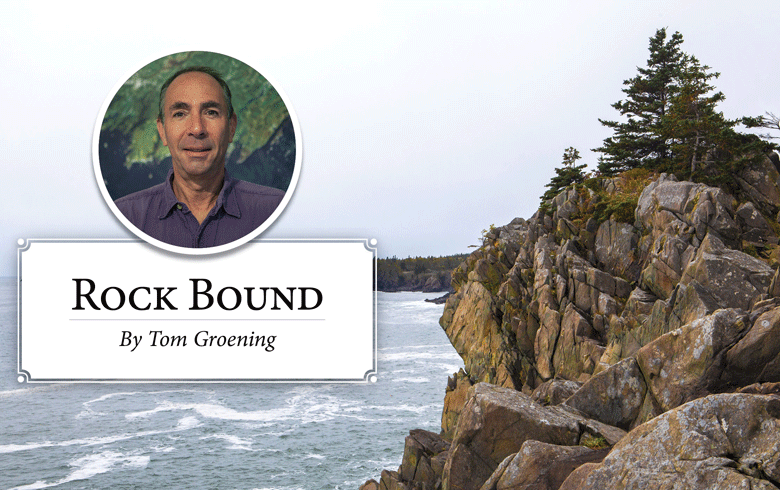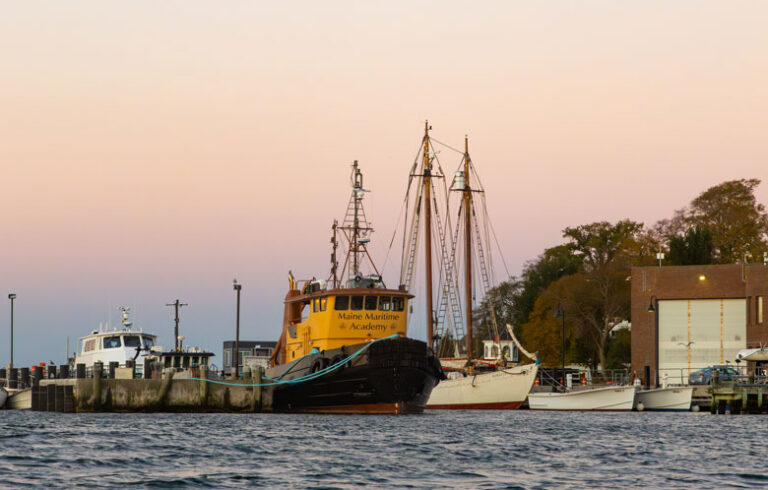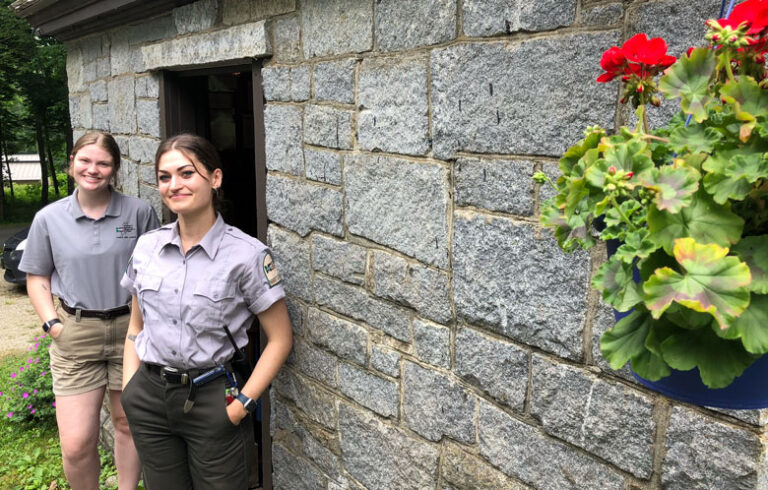A few weeks ago, my wife and I happened to be driving on the Maine Turnpike between Lewiston and Augusta. It had been a long time since we’d traveled that stretch of highway, because living in Belfast, the logical route south is Route 3 to Augusta to I-95, then I-295 toward Portland.
With all the rain in July, the sides of the highway were verdant, and the trees on either side were thick enough to block any views of development. It reminded me of another time driving this stretch of road, 38 years earlier, almost to the week.
We were traveling to Kents Hill just west of Augusta where I’d been hired as an English teacher at a boarding school. I was driving a small box truck with all our possessions and my wife was driving our 1968 Chevelle with our dog.
Looking back at my 24-year-old self, who did not plan on staying in Maine for too long, I struggle to remember…
Driving the turnpike now made me chuckle, remembering that first trip. Coming from New York, my bias was betrayed in reading the map of Maine. The turnpike, I could see, would keep us away from the horrors of metropolitan driving, an option I was happy to have, given what it was like leaving Long Island by traveling through “the city,” as we called it.
Months later, colleagues told us I-295 was a faster way to Portland, and I saw that my fears of big-city driving were unfounded.
Moving to and settling in Maine has been a central part of my story. Maine suits me in ways that other places I’ve seen and imagined don’t. I work at being content no matter my situation, but Maine provides a baseline for that content.
Given the state’s anemic internal population growth, newcomers like me have been important. The wave of back-to-the-landers a dozen years before we arrived certainly have had a documented positive impact to culture and economy.
The immigrants from several African countries who have transformed the cities of Lewiston and Portland have helped, but more newcomers are needed. Twenty years ago, I did some cursory research into what it would take to emigrate to Canada and learned that points were subtracted for each decade of age, and points added for each level of education.
It’s a pretty universal approach, because luring young, educated people to your state or country translates to vitality. I would never assert that people like me are somehow better for Maine than someone born here. In fact, the rap against us is that we often try to remake our communities by adding the amenities we left behind.
There are organizations devoted to bringing young people here—Live+Work in Maine is one we’ve reported on—and they focus on highlighting affordable housing; easy access to rural and water-based recreation; friendly downtowns with pubs, coffeeshops, and music; and broadband.
Looking back at my 24-year-old self, who did not plan on staying in Maine for too long, I struggle to remember what persuaded us to put down roots here. The long, varied, and beautiful coast was a big factor. In our first two years at the school, I had to stay on campus every other weekend. The weekends I was off, we hopped in the car and explored, discovering Camden and Rockport, Acadia, Deer Isle, Boothbay Harbor, Brunswick, and Portland.
It wasn’t hard to imagine a rich life in any of these regions. And the idea of carving out a sort of homestead on a good-sized piece of land had taken root before we even left New York, and it was clear that was possible here.
Making a living was a concern. When it came time to buy land, we drew a triangle from Belfast, to Somerville, to Brunswick and began searching. When we bought 48 acres in Belfast—for $12,000—it seemed that I could commute to a job in Ellsworth, Bangor, Waterville, Augusta, or Rockland. Today, traveling daily to anywhere but Rockland seems brutal.
The other qualities of life that appealed to us were the pretty and lively downtowns, not surrounded by retail sprawl; the friendliness and self-reliance of the people; the room to roam that didn’t require long drives; and a sense from everyone we met that Maine was a place people were proud to live in.
All these years later, Maine still suits me. I worry about the creep of retail sprawl and escalating real estate values along the coast. But I retain a faith in that pride that so many have in living here. I’m willing to bet that give-a-hoot levels about one’s community are higher here than in many states. That gives me hope.
Maine and the world have changed so much since 1983, but the qualities I noticed back then remain, and it seems to me they hold the key to a bright future.
Tom Groening is editor of The Working Waterfront. He may contacted at tgroening@islandinstitute.org





